- Home
- Alexandre Dumas
The Women's War Page 5
The Women's War Read online
Page 5
‘Why, nothing could be easier. Send me my men in your boat, and I shall send you yours in mine.’
‘You have a quick wit and a sharp one.’
‘I should have been a general.’
‘You are one.’
‘Why, so I am,’ said the young man. ‘I’d forgotten.’
The stranger signalled to the ferryman to untie his boat and row him across to the bank opposite the one from which he had come, towards a clump of trees which extended as far as the road.
The young man, who may have been expecting some treachery, half rose so that he could watch him as he went, his hand still on the trigger of his pistol, ready to fire it at the slightest suspicious movement, but the stranger did not even deign to notice the mistrust directed at him and, turning his back on the younger man with what was either real or pretended indifference, began to read the letter, and was soon entirely absorbed in it.
‘Remember the time,’ said Cauvignac. ‘This evening, at eight.’
The stranger did not reply and even seemed not to have heard.
‘Well, well,’ said Cauvignac softly to himself, stroking the butt of his pistol. ‘Just think: if I wanted, I could open the way for a successor to the Governor of Guyenne and stop the civil war.15 But with the Duke d’Epernon dead, what use would my letter of attestation be? And if the civil war were to end, how should I make a living? Quite honestly, there are times when I think I’m going mad! Long live the Duke d’Epernon and the civil war!’
‘Come on, Boatman, take your oars, and let’s head for the other bank. We mustn’t keep this worthy lord waiting for his escort.’
A moment later, Cauvignac landed on the left bank of the Dordogne, just as the old nobleman was sending him Ferguzon and his five bandits in the boat of the Isson ferryman. He did not want to behave any less properly than the other man, so he once more ordered his boatman to take the stranger’s four men in his boat and ferry them across to the other bank. In midstream, the two boats passed and saluted one another politely, then each arrived at the place where it was expected. After that, the old nobleman and his escort plunged into the thicket that stretched from the river bank to the highway, and Cauvignac, at the head of his army, took the path leading to Isson.
III
Half an hour after the scene that we have just described, the same window at Biscarros’s inn that had closed so abruptly, now reopened cautiously and a young man of between sixteen and eighteen, after looking attentively to right and left, leant on his elbow on the sill of this window. He was dressed in black, with sleeves puffed around the cuff, according to the fashion of that time, while a shirt of fine embroidered cambric emerged proudly from his jerkin and fell in folds across his knee-breeches, which were puffed out with ribbons. His hand, small, elegant and chubby – a truly aristocratic hand – was impatiently crumpling a pair of suede gloves embroidered on the seams, while a pearl-grey felt hat, bending at one end under the curved weight of a magnificent blue feather, shielded his long hair, shimmering with gold, which splendidly framed an oval face, pale in colour, with pink lips and black eyebrows. It must be said, though, that this elegant ensemble, which should have made him one of the most charming young cavaliers imaginable, was slightly overshadowed at the moment by an ill-tempered look, caused no doubt by waiting in vain, because the young man was peering into the distance along a road already starting to disappear into the gloom of evening.
In his impatience, he was tapping his left hand with his gloves. At the noise, the innkeeper, who was completing the task of plucking his partridge, looked up and said, taking off his cap: ‘What time will you take supper, sir? We are only awaiting your word before serving you.’
‘You know very well that I shall not be supping alone, and that I am waiting for a friend,’ he replied. ‘When you see him arrive, then you can serve us.’
‘Ah, Monsieur,’ Biscarros replied, ‘I have no wish to criticize your friend, who is surely free to come or not as he pleases, but it is a very bad habit to keep people waiting.’
‘It’s not one of his habits, though, and I’m surprised by the delay.’
‘And I am more than surprised, Monsieur, I am distressed by it: the roast will burn.’
‘Take it off the spit.’
‘Then it will be cold.’
‘So put on another in its place.’
‘It won’t be done in time.’
‘In that case, my friend, do as you will,’ said the young man, unable despite his annoyance to repress a smile at the innkeeper’s despair. ‘I must leave it all up to your supreme wisdom.’
‘There is no wisdom,’ the innkeeper replied, ‘not even the wisdom of Solomon, that can make a reheated dinner fit to eat.’
At this maxim which, some twenty years later, Boileau would put in verse,16 Master Biscarros returned to his inn, sadly shaking his head.
At that, the young man, as though to calm his impatience, went back into the room, his boots clattering for a moment on the floor; then, thinking that he heard the sound of horses’ hooves in the distance, quickly went back to the window, exclaiming: ‘At last! Here he is! Thank heaven!’
The young man did indeed see the head of a rider appear behind the clump of trees in which the nightingale was singing – though, doubtless because his mind was so much taken up with other matters, had paid no attention to its melodious notes – but to his great astonishment, he waited in vain for the rider to come out on to the road; the new arrival turned right and entered the bushes, where his hat soon vanished from view, a clear sign than he had dismounted. A moment after this, the young man saw the leaves parted cautiously and, between them, a grey paletot,17 and the flash of one of the last rays of the setting sun on the barrel of a musket.
The young man remained at his window, deep in thought. Clearly, this rider hidden in the bushes was not the friend for whom he had been waiting, and the look of impatience that had furrowed his expressive features gave way to one of curiosity.
Very soon, a second hat appeared in the bend of the road, and the young man stepped back out of sight.
The same grey coat, the same manoeuvre with the horse and the same shining musket; the second man said a few words to the first that our observer could not hear because of the distance, and, no doubt in response to the information provided by his companion, he made his way into the copse opposite the clump of trees, dismounted, hid behind a rock and waited.
From his high vantage point, the young man could see the felt hat above the rock and beside it a glistening point of light: this was the end of the musket barrel.
A vague feeling of terror crossed the mind of the young gentleman, who was moving further and further out of sight as he watched the scene.
‘Now, now,’ he wondered. ‘Can they be after me and the thousand louis18 that I am carrying? Surely not, because if Richon does arrive and I am able to set off this evening, I shall be going to Libourne and not to Saint-André-de-Cubzac, so I shall not be going towards where these fellows are waiting. If only my old Pompée were here, I’d ask him. But, if I’m not mistaken… yes, by Jove! Two more men are coming. Huh! This looks to me very much like an ambush.’
And he took a further step backwards.
At that moment, two other riders appeared at the same high point in the road, but this time only one was wearing a grey jacket; the other, riding a powerful black steed and wrapped in a great cloak, had a hat trimmed with braid and decorated with a white feather, and under his cloak, where it was lifted by the evening breeze, you could see rich embroidery winding across an orange-red jerkin.
It was as though the day had lingered to illuminate this scene, because the last rays of the sun, bursting through one of those banks of black cloud that sometimes spread along the horizon in such a picturesque manner, suddenly cast the light of a thousand rubies on the windows of a pretty house standing some hundred yards from the river – a house that, otherwise, the young man would not have noticed, since it was hidden among the branches of some densely planted trees. This burst of light let him see first of all that the faces of the spies were turning alternately towards the entrance of the village and the little house with the shining windows; secondly, that the grey paletots seemed to have the greatest respect for the white feather, doffing their caps to it whenever they spoke; and finally that one of the illuminated windows was open, and a woman appeared on the balcony, leant out for a moment, as though she, too, were waiting for somebody, then shrank quickly back inside, no doubt afraid of being seen.
As she went back inside, the sun was dipping beneath the mountain, and as it did so the ground floor of the house seemed to be sinking into darkness, the light gradually leaving the windows, climbing the slate roof and finally disappearing, after having played for one final moment over a bunch of golden arrows that served as a weathervane.
Any thinking person had here a number of signs on the basis of which one might establish, if not certainties, at least some probabilities.
It is probable that the men were watching the little, solitary house, on the balcony of which the woman had momentarily made her appearance. It was also probable that this woman and those men were waiting for one and the same person, but with very different intentions. Meanwhile, it was also probable that the person for whom they were waiting was to come through the village and consequently pass in front of the inn which was situated halfway between the village and the clump of trees, just as the clump of trees was situated halfway between the inn and the house. Finally, it was likely that the rider with the white feather was the leader of the mounted men with the grey cloaks and that, by his keenness as he rose in his stirrups to see further, this leader was jealous and certainly interested on his own account in keeping watch.
Just as the young man had mentally reached the last in this chain of arguments, the door of his room opened, and Biscarros came in.
‘My dear chap,’ said the young man, for whom the innkeeper’s entrance was most convenient, not giving Biscarros time to explain why he had come (which the young man guessed, in any case). ‘Come here and tell me, if the question is not indiscreet, who is the owner of that little house you can see over there, like a white dot among the poplars and the sycamores?’
The innkeeper looked in the direction the young man was pointing and scratched his forehead.
‘Why, sometimes this one, at others that,’ he said, with what he tried to make into a scornful smile. ‘It could be yours, if you had some reason to seek solitude, either because you wanted to hide there yourself, or because you wanted to hide someone else.’
The young man blushed. ‘But who is living there now?’ he asked.
‘A young lady who claims to be a widow, to whom the shades of her first, and perhaps also of her second husband return for the occasional visit. However, there is one remarkable thing, which is that the two ghosts must have an agreement among themselves, because they never return at the same time.’
‘And for how long,’ the young man asked with a smile, ‘has the lovely widow inhabited this lonely house, so convenient for apparitions?’
‘For about two months. But she keeps herself to herself, and no one in those two months, I think, can boast of having seen her, because she rarely comes out, and when she does, she wears a veil. A little maid, who is a quite delightful girl, comes here every morning to order the meals of the day from me. They are sent over, and she takes the dishes in the hall, settles the bill generously and immediately shuts the door in the waiter’s face. This evening, now, there is a feast, and it is for her that I was preparing the quails and partridges which you saw me plucking.’
‘And with whom is she sharing her dinner?’
‘Presumably with one of the two shades I told you about.’
‘Have you occasionally seen these two shades?’
‘Yes, but only as they went past, in the evening when the sun had set or in the morning before it had risen.’
‘I am certain, nonetheless, that you must have noticed them, my dear Master Biscarros, because one can tell by talking to you that you are an observer. Now, tell me, what have you noticed particularly in the appearance of these two shades?’
‘One is that of a man aged between sixty and sixty-five, and it looks to me like that of the first husband, because it comes like a shade convinced of the primacy of its rights. The other belongs to a young man of between twenty-six and twenty-eight, and I have to say this one is more shy and looks just like a tormented soul. This is why I would swear that it belongs to the second husband.’
‘And what time have you been ordered to serve supper this evening?’
‘At eight.’
‘It is half past seven,’ the young man says, taking a very pretty watch, that he had already glanced at several times, out of his fob pocket. ‘Which means you have no time to lose.’
‘Oh, don’t you worry, it will be ready. But I came up here to talk to you about your own supper and to tell you that I have just begun it again from scratch. So please, would you now try to ensure, since your friend has managed to arrive so late, that he doesn’t come until an hour from now.’
‘Listen, my good fellow,’ the young gentleman said, with the air of a man for whom this serious matter of a meal served at the correct time was only a secondary consideration, ‘don’t bother yourself about our supper, even when the person whom I am expecting arrives, because we have to talk. If the supper is not ready, we shall talk before dining, and if it is ready, we shall talk afterwards.’
‘Indeed, sir,’ the innkeeper said, ‘you are a most accommodating gentleman, and since you are prepared to leave yourself in my hands, you will be pleased, don’t worry.’
At this, Master Biscarros bowed deeply, before leaving. The young man replied with a slight nod.
‘Now, I understand everything,’ the young man said to himself, resuming his place at the window, with some curiosity. ‘The lady is waiting for someone coming from Libourne, and the men in the shrubbery intend to attack the visitor before he has time to knock on the door.’
At the same time, and as though to justify our sharp-witted observer’s prediction, there was the beat of a horse’s hooves coming from his left. Swift as lightning, the young man’s eyes swept the undergrowth to see the response of the ambushers. Although nightfall was making it hard to distinguish objects in the darkness, he thought that he could make out some of them pushing aside the branches and others raising themselves to look over the top of the rocks, both groups apparently preparing for a move that had every appearance of aggression. Meanwhile, three times he heard a dry click, like the sound of a musket being cocked, his heart leaping at each one. He quickly turned towards Libourne in an attempt to see the person who was threatened by this deadly noise and saw a handsome young man trotting along on a fine, strapping horse, his head held high, with a triumphant manner and one hand resting on his hip, his short cloak lined in white satin elegantly open to reveal his right shoulder. From a distance, the figure seemed debonair, full of gentle poetry and joyous pride. As he drew closer, one noticed the fine features, high colour, burning eye and mouth half-open from its habit of smiling, with exquisite white teeth beneath a delicate black moustache. The triumphant twirling of a switch of holly and a little whistle such as those affected by the dandies of the time, made fashionable by Monsieur Gaston d’Orléans,19 completed the picture, making the new arrival a ‘parfit gentil knight’ according to the laws of good taste in force at the time in the French court, which was already starting to set the fashion for all the courts of Europe.
Fifty yards behind him, riding a mount whose pace he adjusted to that of his master’s, was a very showy, very arrogant-looking lackey whose place among domestic servants seemed no less distinguished than that of his master among the gentry.
The handsome young man at the window of the inn was probably still too young to stand idly by and witness the kind of scene that was unfolding here, so could not repress a shudder when he thought that these two fine specimens, who were approaching so light-heartedly and so full of self-assurance, were in all likelihood about to be mown down when they reached the waiting ambush. He appeared to fight a brief inner battle between the shyness natural to his age and a feeling of love for his fellow men. In the end, it was this generous feeling that won the day, and, as the rider was about to pass in front of the door of the inn without even turning his head, the young man gave way to a sudden impulse and irresistible determination and leant forward, calling out to the handsome traveller: ‘Hey, Monsieur! Stop, I beg you! I have something important to tell you.’
At this voice and these words, the horseman looked up and, seeing the young man at the window, halted his mount with a hand movement that would have done credit to the finest riding instructor.
‘Don’t stop your horse, Monsieur,’ the young man went on, ‘but on the contrary ride over towards me calmly, as though you knew me.’
The traveller hesitated for an instant, but seeing that the young man addressing him was a well-presented, good-looking person of gentle birth, he took off his hat and came over with a smile.
‘I have done as you said, Monsieur,’ he remarked. ‘Now, how can I serve you?’
‘Come a little closer still,’ the stranger at the window went on, ‘because what I have to tell you cannot be said in a loud voice. And put your hat back on, because people must believe that we have known each other for a long time and that I am the person you are coming to see in this inn.’
‘But, Monsieur, I don’t understand…’ said the traveller.
‘You will very soon. Meanwhile, put your hat on. Good, now come closer, closer… Give me your hand! That’s right! Delighted to see you! Now, do not go beyond this inn, or you are lost.’
‘What’s the matter? What you say is most alarming,’ the traveller remarked, with a smile.
‘The matter is that you are going to that little house where the light is burning, are you not?’

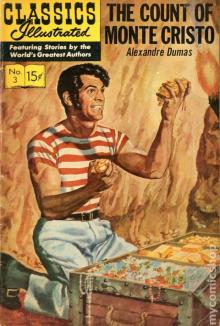 The Count of Monte Cristo, Illustrated
The Count of Monte Cristo, Illustrated Knight of Maison-Rouge
Knight of Maison-Rouge![The Three Musketeers - Alexandre Dumas - [Full Version] - (ANNOTATED) Read online](http://i1.bookreadfree.com/14/the_three_musketeers_-_alexandre_dumas_-_[full_version]_-_annotated_preview.jpg) The Three Musketeers - Alexandre Dumas - [Full Version] - (ANNOTATED)
The Three Musketeers - Alexandre Dumas - [Full Version] - (ANNOTATED)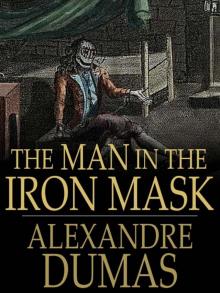 The Man in the Iron Mask
The Man in the Iron Mask The Count of Monte Cristo (Penguin Classics eBook)
The Count of Monte Cristo (Penguin Classics eBook) Count of Monte Cristo (abridged) (Barnes & Noble Classics Series)
Count of Monte Cristo (abridged) (Barnes & Noble Classics Series) The Women's War
The Women's War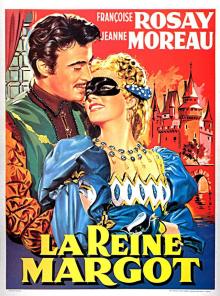 La reine Margot. English
La reine Margot. English The Vicomte de Bragelonne
The Vicomte de Bragelonne__english_preview.jpg) La dame aux camélias (Novel). English
La dame aux camélias (Novel). English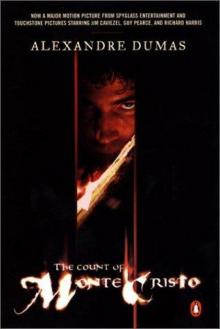 The Count of Monte Cristo
The Count of Monte Cristo Balsamo, the Magician; or, The Memoirs of a Physician
Balsamo, the Magician; or, The Memoirs of a Physician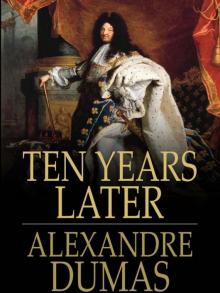 Ten Years Later
Ten Years Later The Romance of Violette
The Romance of Violette The Mesmerist's Victim
The Mesmerist's Victim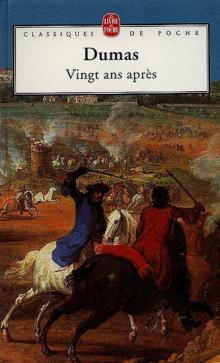 Vingt ans après. English
Vingt ans après. English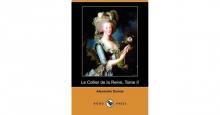 Le collier de la reine. English
Le collier de la reine. English Taking the Bastile; Or, Pitou the Peasant
Taking the Bastile; Or, Pitou the Peasant The Hero of the People: A Historical Romance of Love, Liberty and Loyalty
The Hero of the People: A Historical Romance of Love, Liberty and Loyalty Louise de la Valliere
Louise de la Valliere Les Quarante-cinq. English
Les Quarante-cinq. English Ange Pitou (Volume 1)
Ange Pitou (Volume 1) The Royal Life Guard; or, the flight of the royal family.
The Royal Life Guard; or, the flight of the royal family.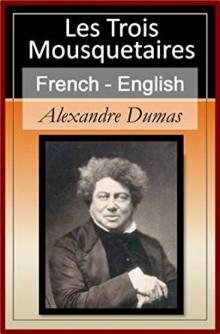 Les trois mousquetaires. English
Les trois mousquetaires. English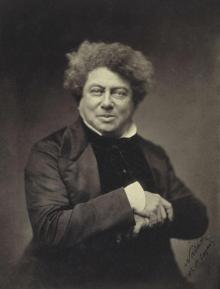 Une fille du régent. English
Une fille du régent. English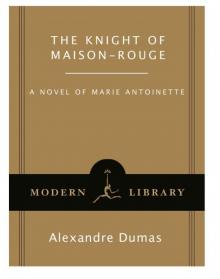 The Knight of Maison-Rouge
The Knight of Maison-Rouge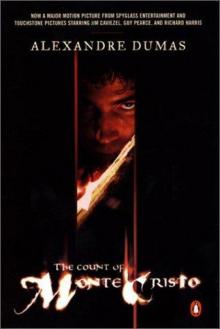 The Count of Monte Cristo (Unabridged Penguin)
The Count of Monte Cristo (Unabridged Penguin) Ange Pitou
Ange Pitou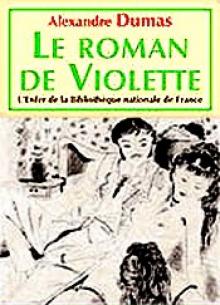 The Romance of Violette (vintage erotica)
The Romance of Violette (vintage erotica) The Three Musketeers
The Three Musketeers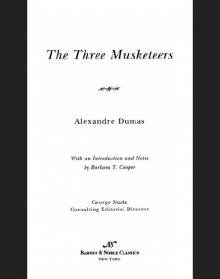 Three Musketeers (Barnes & Noble Classics Series)
Three Musketeers (Barnes & Noble Classics Series) Georges
Georges Man in the Iron Mask (Barnes & Noble Classics Series)
Man in the Iron Mask (Barnes & Noble Classics Series) The Red Sphinx
The Red Sphinx